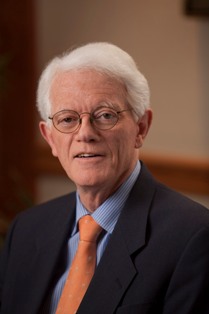Previously, we summarized an interview with Michael F. Price & an interview with David E. Shaw from Peter J. Tanous’ book Investment Gurus. Below are highlight from yet another fantastic interview, this time with Peter Lynch, the legendary investor who ran Fidelity's Magellan Fund from 1977-1990, compounding at ~30% annually during that period.
When To Buy, Volatility, Catalyst
On technical buy indicators, expected volatility, and catalysts:
“I have traditionally liked a certain formation. It’s what I call the electrocardiogram of a rock. The goes from, say, 50 to 8. It has an incredible crater. Then it goes sideways for a few years between 8 and 11. That’s why I call it the EKG of a rock. It’s never changing. Now you know if something goes right with this company, the stock is going north. In reality, it’s probably just going to go sideways forever. So if you’re right it goes north and if you’re wrong it goes sideways. These stocks make for a nice research list…stocks that have bottomed out...
...When it’s going from 50 to 8, it looks cheap at 15; it looks cheap at 12. So you want the knife to stick in the wood. When it stops vibrating, then you can pick it up. That’s how I see it on a purely technical basis…why the stock is on your research list, not on your buy list. You investigate and you find that of these ten stories, this one has something going on. They’re getting rid of a losing division, one of their competitors is going under, or something else.”
When To Buy
“You could have bought Wal-Mart ten years after it went public…it was a twenty-year-old company. This was not a startup…You could have bought Wal-Mart and made 30 times your money. If you bought it the day it went public you would have made 500 times your money. But you could have made 30 times your money ten years after it went public.”
Many value investors experience difficulty buying assets when prices are moving upward. At those moments, perhaps it’s important to remember to see the forest (ultimate risk-reward) through the trees (an upward moving price).
Expected Return, Fat Tail
“There may be only a few times a decade when you make a lot of money. How many times in your lifetime are you going to make five times on your money?”
I hear chatter about “lotto ticket” and “asymmetric risk-reward” ideas all the time. A friend recently joked that he would rather buy actual lotto tickets than the lotto-ticket-ideas because with the former he actually stands a chance of hitting the jackpot.
Apparently, Peter Lynch sort of agrees with my friend. Markets are generally efficient enough that asymmetric risk-reward opportunities rarely occur. The tricky part is discerning between the real deal vs. imitations conjured from misjudgment or wishful thinking analysis.
Diversification, Correlation
“If you buy ten emerging growth funds and all these companies have small sales and are very volatile companies, buying ten of those is not diversification.”
The correlation between assets, not the number of assets, ultimately determines the level of diversification within a portfolio.
Clients
“One out of every hundred Americans was in my fund…For many of these people, $5,000 is half their assets other than their house. And there are people you meet who say we sent our kids to college, or we paid off the mortgage. What I’m saying is that it’s very rewarding to have a fund where you really made a difference in a lot of people’s lives.”
How refreshing. Those who work in the investment management world sometimes forget for whom they toil (beyond numero uno). A job well done could potentially make large positive impacts on the lives of others.
Team Management
On how he’s spending his time after stepping down from managing the Magellan Fund:
“…I work with young analysts. We bring in six new ones a year and I work with them one-on-one.”
Process Over Outcome
On whether Peter Lynch would have pursued an investment career had he lost money in his first stock purchase:
“Well, I guess if I’d lost money over and over again then maybe I would have gone into another field.”
Only in the long-run is outcome indicative of skill.
Mandate
“…I was always upset by the fact that they called Magellan a growth fund. I think that is a mistake. If you pigeonhole somebody and all they can buy are the best available growth companies, what happens if all the grow companies are overpriced? You end up buying the least overpriced ones.”

